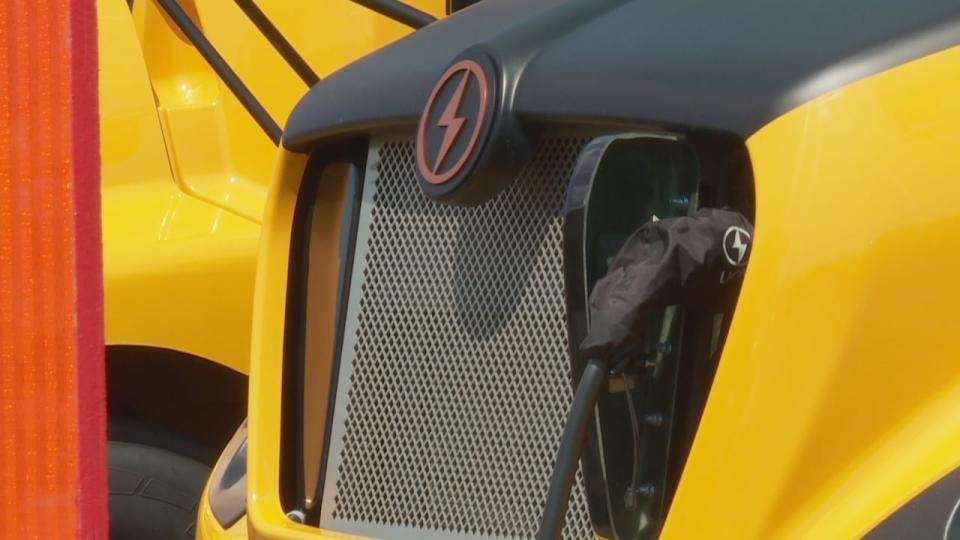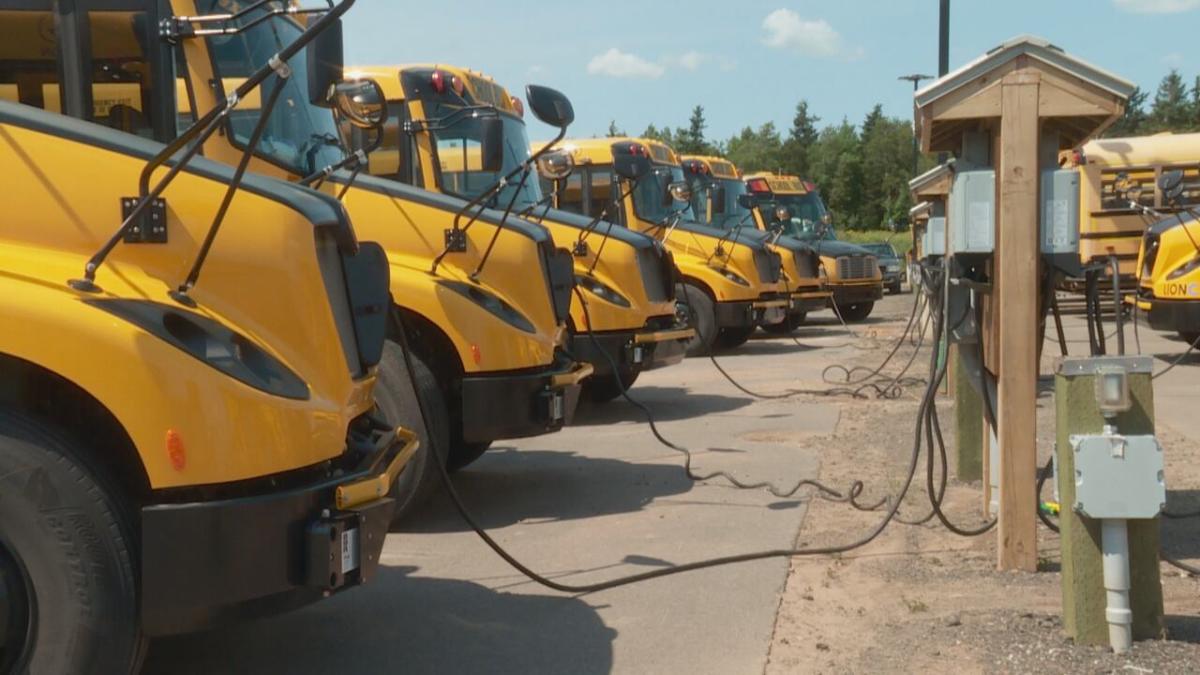The P.E.I. government is replacing 30 aging school buses with diesel ones this year, despite a pledge to phase out diesel and move entirely to electric.
“This isn’t our first choice, by any stretch of the imagination,” said Steven Myers, P.E.I.’s Minister of Environment, Energy and Climate Action.
Myers said the problem is federal funding.
P.E.I. currently has about 100 electric school buses in its fleet of more than 300 vehicles — all of which were cost shared between the provincial and federal governments.

Steven Myers, P.E.I.’s Minister of Environment, Energy and Climate Action, says his government is waiting on funding from Ottawa to buy more electric school buses. (Tony Davis/CBC)
But Myers said Ottawa hasn’t yet committed to any new money for electric school buses for the Island.
Without funding help, he said his government had no choice but to buy cheaper diesel ones, to replace the 30 buses coming out of commission. The new diesel buses will be used “for the entirety of their life cycle,” he added.
I think we’re still on a good track. Is this perfect? For me, no, this isn’t perfect when it comes to climate change. But in the job I have, nothing’s perfect. — P.E.I. Environment Minister Steven Myers
“We need the buses on the road. We’re in limbo as far as where our federal funding is, and we hope to get that cleared up,” he said.
“I think if you look across Canada, you’ll see all kinds of jurisdictions planning the switch to electric buses that are kind of in limbo while they wait for this funding, because the electric school bus is obviously more than double the cost of a diesel bus.”
‘Full electrification’ by 2030
In his 2020 state of the province address, P.E.I. Premier Dennis King committed to full electrification of the province’s school bus fleet “over the next few years.”
The provincial government has since said the goal is for the fleet to be fully electric by 2030.
“I think we’re still on a good track,” Myers said. “Is this perfect? For me, no, this isn’t perfect when it comes to climate change. But in the job I have, nothing’s perfect.”


The Island’s school bus drivers’ union has spoken out about problems with some of the electric bus heaters and charging systems, as well as long delays in getting the buses repaired. (Brittany Spencer/CBC)
The move to electric school buses on P.E.I. has come with its challenges.
All the buses bought so far were manufactured by Lion Electric. The P.E.I. bus drivers’ union has spoken out about problems with their heaters and charging systems, as well as long delays in getting them repaired.
In a statement to CBC News Thursday, one week before the new school year begins, a P.E.I. government spokesperson confirmed issues with the buses are being worked on.
“Lion is the manufacturer, and their mechanics are in the province repairing electric school bus components, including the auxiliary heaters. Supply chain issues have led to certain adjustments on timing, but Lion confirms that repairs are expected to be shortly completed,” the email said.
‘Overplay on the struggle’
P.E.I.’s environment minister maintains buying more electric buses still makes sense. The province just needs Ottawa’s help, he said.
“I think there’s been some overplay on the struggle of electric buses. We’ve done a great job, and we’re building the charging network for them here now. So we’re confident in the electric school buses,” he said.
“We hope to have the funding thing fixed up this year, and that’ll be a long-term funding agreement when we have it.”
CBC News reached out to Lion Electric and the federal government for comment, but didn’t hear back.

